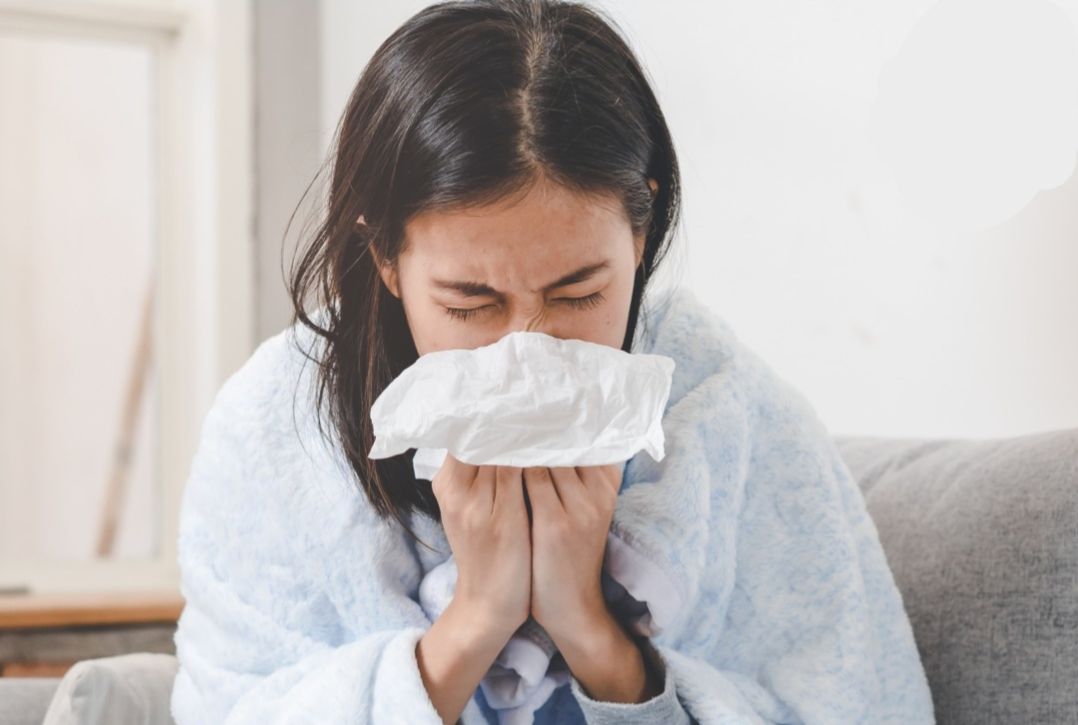
Breastfeeding when you are sick
Share
It's getting to be that time of the year: the weather gets colder, and colds and flus amp up. If you have kids in daycare or preschool, you're probably getting a lot of alerts about strep and other bugs that are going around.
If you have a baby at home, you might be extra concerned. For moms that breastfeed, breastmilk is full of immune boosters, and protects little ones from many illnesses. Your milk is constantly changing to meet the needs of your baby, and that includes making antibodies for germs you may have been exposed to.
Should you stop breastfeeding when you are sick with a cold or virus?
The short answer is No.
There are very rare instances where a mother would need to completely stop breastfeeding her child. In those circumstances, your doctor and lactation professional would help you make a plan.
If you have a “common or ordinary” illness such as a cold, sore throat, stomach bug, fever, or mastitis, breastfeeding as normal is generally recommended to continue.
You may need to remind your doctor that you are breastfeeding, so that a compatible medication can be prescribed. Many medications are safe to take when breastfeeding, and if needed, there are often good alternatives available. If you have questions about medications and breastfeeding, you can talk to your lactation professional or the Infant Risk Center for detailed information.
Breastfeeding with Influenza or COVID
According to the CDC, illnesses like the flu or COVID-19 are spread “Person-to-person…mainly via respiratory droplets produced when an infected person coughs or sneezes.” They recommend that mothers continue breastfeeding, as breastmilk contains antibodies and immunology that can protect your infant.
If you are experiencing symptoms or diagnosed by your doctor, the CDC suggests you should:
- Take all possible precautions to avoid spreading the virus to her infant, including washing her hands before touching the infant and wearing a face mask, if possible, while feeding at the breast.
- If expressing breast milk with a manual or electric breast pump, the mother should wash her hands before touching any pump or bottle parts and follow recommendations for proper pump cleaning after each use.
- If possible, consider having someone who is well feed the expressed breast milk to the infant.
To prevent spreading all types of germs or illness, parents should:
- Practice thorough hand washing, especially after coughing or sneezing.
- Cover nose and mouth with a tissue when you cough or sneeze - throw the tissue away after you use it, and wash your hands.
- Avoid touching your eyes, nose or mouth. Germs often spread this way.
- Clean and disinfect frequently-used surfaces in your home.

Does being sick affect my milk supply?
Some mothers report a decrease in milk production when they are ill. It is important to stay hydrated, and if you do see a slight dip, rest assured your supply will return once you are feeling better. You may also notice that your baby wants to nurse more frequently when you don't feel well.
Reasons for this can vary, but continue to feed on demand to keep up your milk production. If a mother is too ill to care for her baby and a healthy caregiver has stepped in to help, the mother should be encouraged to express breastmilk regularly, to prevent any dip in supply and so the baby can continue to receive breastmilk.
What if my baby gets sick too?
If you are sick, there is a good chance that your baby has already been exposed and your body is producing antibodies in your milk to keep your little one protected. Taking the precautions listed above will also help to prevent any illness and keep your baby healthy.
Getting sick is, unfortunately, a fact of life. As parents, we do all that we can to keep ourselves and our little ones healthy. If you do fall ill, rest assured that breastfeeding can continue, and that breast milk is a wonderful way to keep your child healthy.